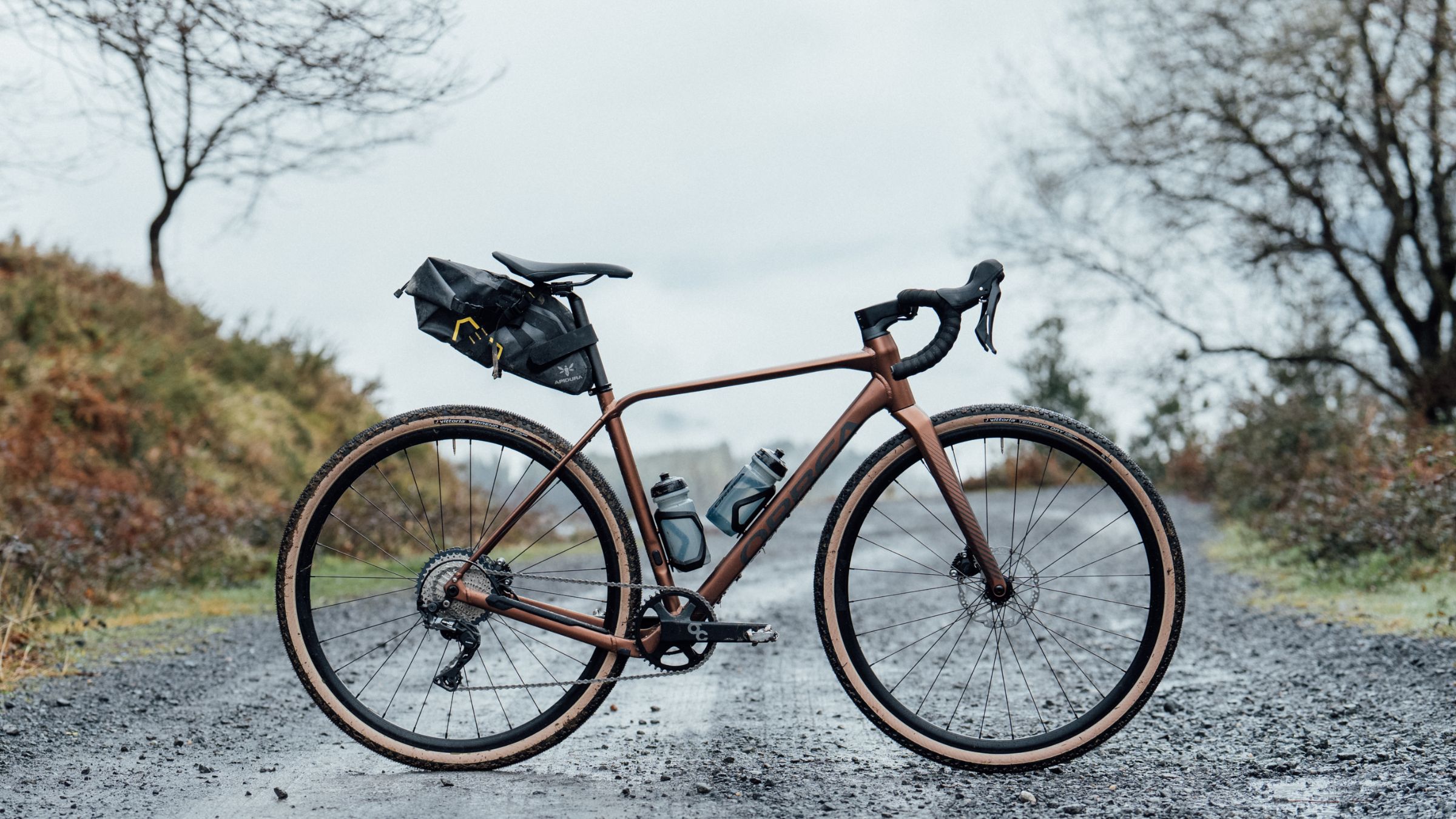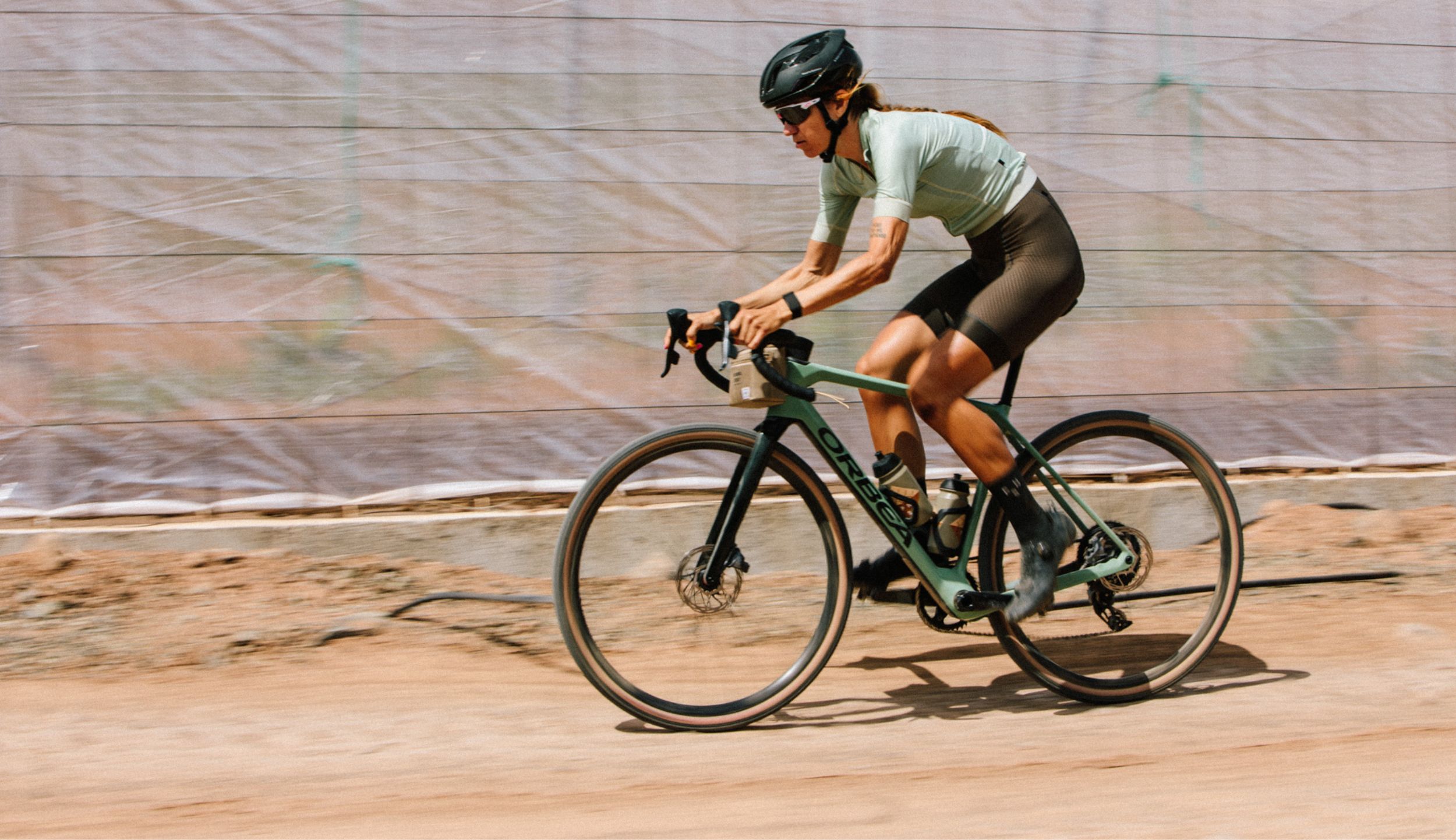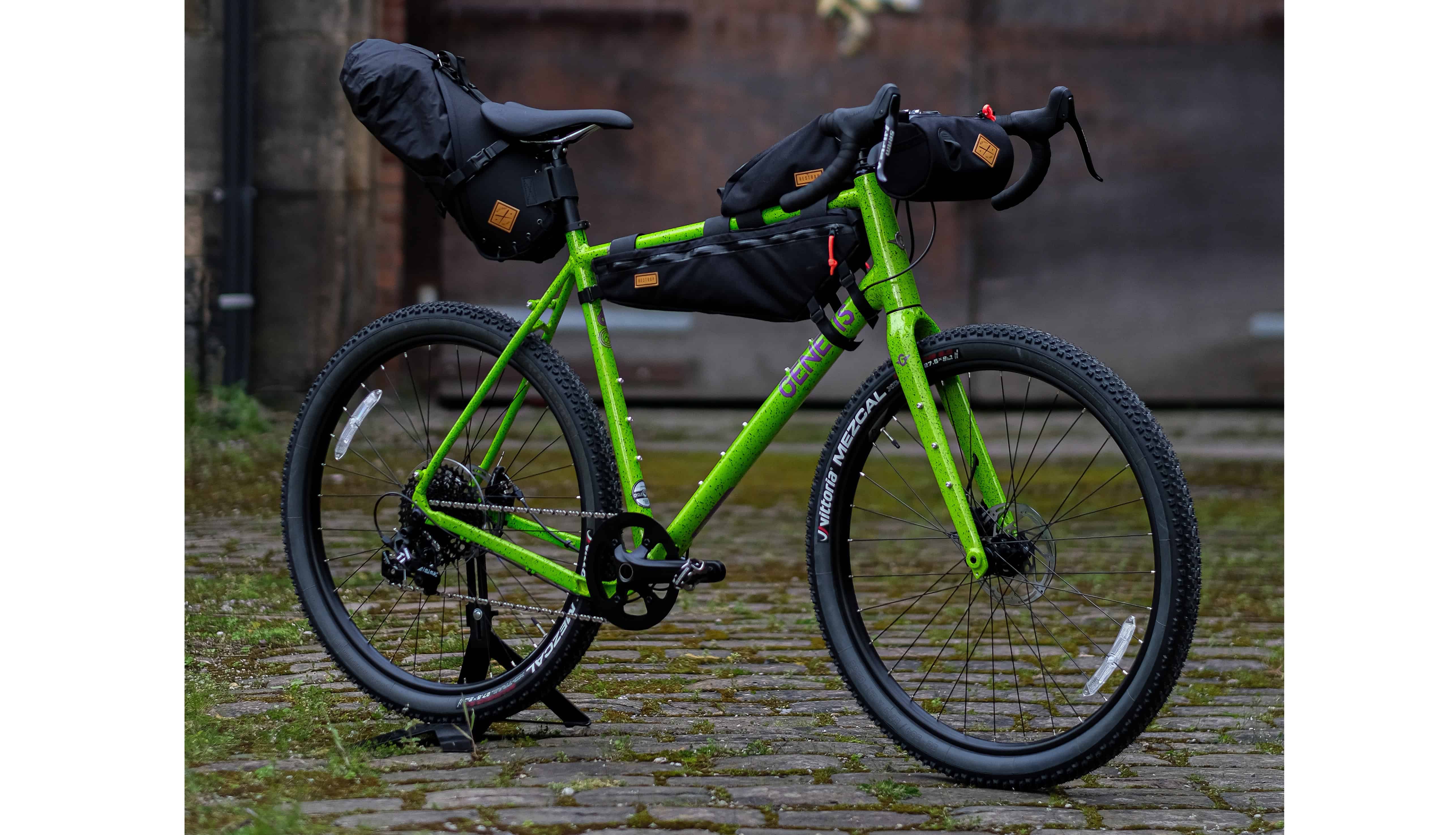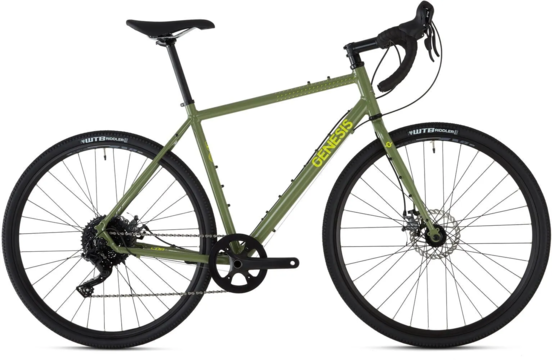Gravel Bikes - Tame The Terrain

Conquer any path with gravel bikes & electric gravel bikes! Explore freedom on two wheels. Gravel bikes offer versatility & comfort, while electric gravel bikes add power for adventure. Discover your perfect match & explore further today!
What are Gravel Bikes?
A gravel bike is a type of bicycle designed for riding on a variety of surfaces, particularly loose gravel roads and unpaved paths. They are a hybrid between a road bike and a mountain bike, offering the speed and efficiency of a road bike with the capability to handle rougher terrain.

Benefits of Gravel Bikes
- Versatility: Explore beyond the pavement! Gravel bikes are best on paved roads, gravel paths, and even light singletrack, opening up a world of riding possibilities.
- Comfort: The upright riding position and wider tires offer a more comfortable ride on rough terrain compared to a road bike.
- Adventure Ready: Most gravel bikes feature multiple frame mounts for racks, fenders, tents and bottles, they are the perfect bike for bikepacking adventures.
- Durability: Built to handle the demands of off-road riding, gravel bikes are generally more robust than road bikes.

Choosing the Right Gravel Bike
Choosing the best gravel bike depends on your riding style, the terrain you'll be conquering, and your budget. Here's a guide to help you navigate the selection process:
- Consider Your Riding Style and Terrain:
- Casual Exploring: For light gravel paths and occasional dirt roads, a more affordable aluminum frame with wider tires (35-40mm) and a relaxed geometry might suffice.
- Adventure Riding: If you plan on tackling hillier terrain or longer distances, consider a bike with a carbon fiber or steel frame for a lighter weight or a more comfortable ride, respectively. Wider tires (40-50mm) and a wider gear range cassette will be beneficial.
- Performance-Oriented: For riders prioritizing speed and efficiency on gravel, a carbon fiber frame with a more aggressive geometry and narrower gravel tires (35-40mm) might be ideal.
- Frame Material:
- Aluminum: Affordable, durable, and a great choice for beginners or those on a budget.
- Carbon Fiber: Lightweight, stiff for efficient power transfer, but can be more expensive and susceptible to cracks.
- Steel: Comfortable ride due to vibration dampening, good for bikepacking due to strength, but heavier than the other options.
- Drivetrain:
- Shimano/SRAM Groupset Compatibility: Ensure your chosen bike works with your preferred groupset brand for easier component upgrades in the future.
- 1x vs. 2x Drivetrain:
- 1x offers simplicity and less weight, but gear jumps might be larger.
- 2x provides more gear options for tackling various terrains, but adds complexity and weight.
- Other Components:
- Brakes: Disc brakes are standard on gravel bikes, offering superior stopping power in all weather conditions.
- Wheels: 700c wheels are most common, but 650b wheels with wider tires can be good for rougher terrain and increased comfort.
- Test Ride Different Bikes: Get a feel for different frame sizes, geometries, and component setups before making a purchase.
- Consider Used Bikes: You can find good deals on used gravel bikes, especially if you're just starting.
- Factor in Future Upgrades: Choose a bike with upgrade potential in mind, like frame compatibility with future groupsets or wheels.
- Remember: Don't be afraid to ask questions, we are a UK based shop in Halifax with decades of experiance. We can provide valuable advice based on your specific needs and help you find the perfect gravel bike to conquer any path. You can call us on 01422 344602 or email us at info@ukbikesdepot.com

Gravel Bike FAQS
Are Gravel bikes Good For Commuting?:
Gravel bikes can be very good for commuting, depending on your specific commute. Here's a breakdown of the pros and cons to help you decide:
Pros of using a gravel bike for commuting:
- Versatility: They can handle a variety of surfaces, including paved roads, bike lanes, gravel paths, and even light trails. This allows you to avoid busy roads or take scenic detours on your commute.
- Comfort: The upright riding position and wider tires offer a more comfortable ride on rough roads and uneven surfaces compared to a road bike. This can be especially beneficial for longer commutes.
- Durability: Built to handle the demands of off-road riding, gravel bikes are generally more robust than road bikes. This can be advantageous for dealing with potholes, debris, and other hazards you might encounter on your commute.
- Fenders and Racks: Many gravel bikes have mounts for fenders and racks, allowing you to stay dry and carry essentials like bags or panniers for work.
Cons of using a gravel bike for commuting:
- Slightly Slower on Paved Roads: While still fast, gravel bikes may be a tad slower than pure road bikes on smooth pavement due to their wider tires and slightly different geometry.
- Heavier than Road Bikes: Gravel bikes are typically heavier than road bikes because of their wider tires and more robust frames. This can be a factor if you have to carry your bike up stairs or store it in a limited space.
- Gearing: Some gravel bikes have wider range cassettes for climbing, which might not be ideal for maintaining high speeds on flat commutes.
Best Gravel Bikes For Under £1000:
We have a strong range of Gravel Bikes, Here are our tops picks:
Best Gravel Bike for Beginners
Here are our best options for beginners:
See our full range of Gravel bikes:
See Our Full Range Of Gravel Bikes Here
Overall, gravel bikes are a great choice for cyclists who want to explore beyond the limitations of paved roads. They offer a blend of speed, comfort, and capability, making them perfect for adventure rides and exploring new terrain.
